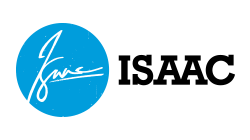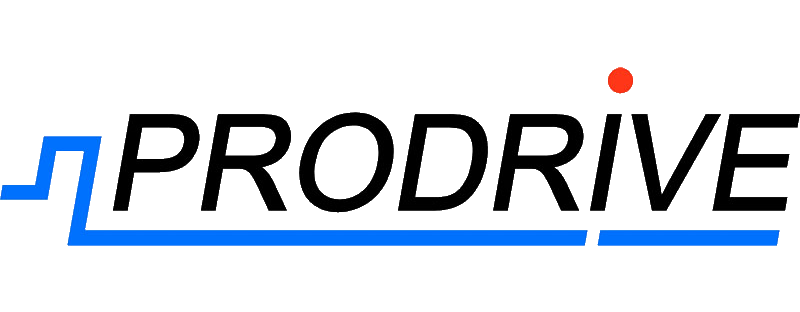Schedule EAPC 2017
Schedule EAPC 2016
- 10:00 - The MetaForum opens, coffee and tea will be prepared at GEWIS
- 11:00 - Start of the testsession (~30-minutes)
- 11:30 - Start of the lunch
- 12:30 - Start of the actual contest (5 hours)
- 17:30 - Social drink
- 18:00 - Award Ceremony and presentation by juror (iff available)
Schedule EAPC 2015
- 10:00 - The MetaForum opens, coffee and tea will be prepared at GEWIS
- 11:00 - Start of the testsession (~30-minutes)
- 11:30 - Start of the lunch
- 12:30 - Start of the actual contest (5 hours)
- 18:00 - Award Ceremony and presentation by juror (iff available)
EAPC 2015
- C
- C++(11)
- C#
- Java
| Language | compiler | command | alias |
| C | gcc (v4.8.2) | mygcc | |
| C++ | g++ (v4.8.2) | mygcc | |
| C# | dmcs (3.2.8.0) | mydmcs | |
| Java | OpenJDK () | myjavac | |
| Haskell | ghc (7.6.3) | mygcc |
We will also provide a number of IDE's on the laptops, namely:
- VIm
- Emacs
- Kate
- Netbeans
- Eclipse
- GEdit
- C
- C++
- Python (2.7.5)
- Java
Erollment EAPC 2015
Scoreboard EAPC2013
Rules
1. Definitions
- EAPC:
- The Eindhoven Algorithm Programming Contest 2015, organized by GEWIS. It will take place on September 19th, 2015.
- GEWIS:
- Study association for Computer Science and Mathematics of the Eindhoven University of Technology.
- Organisation:
- The members of the organizing committee of GEWIS.
- Website:
- The website, maintained by the organisation and available at http://gehack.gewis.nl/
- Jury:
- The group of people responsible for making the problems and checking the solutions submitted by the participants, appointed by the organisation.
- Runners:
- Those responsible for delivering print-outs, answering questions and various other tasks, appointed by the organisation.
- Crew:
- Organisation, members of the jury and runners.
- Participant:
- Member of a participating team that competes in BAPC.
- Submission:
- A submission of a solution by a team.
2. Organisation
2.1 The organisation consists of members of GEWIS.
2.2 The organisation has formed a jury which exists of members of the organisation, students and staff of the Eindhoven University of Technology and other universities.
2.3 The organisation will appoint runners who will watch over the competition areas during the contest, hand out the print-outs and balloons and will be available for practical questions during the day.
2.4 The organisation will form a board of contest leader.
3. Participation
3.1 Introduction
3.1.1 Participation is only possible in teams consisting of up to 3 persons.
3.1.2 There are two pools: one for student teams and one for business teams.
3.1.3 Changing the composition of a team is only possible when the organisation has agreed upon this.
3.1.4 The organisation decides how many teams from each institution are allowed to compete. The organisation will consider the number of interested contestants from each institution.
3.1.5 The organisation has the right to deny teams of participation before the start of the contest.
3.2 Student teams
A student team:3.2.1 may participate for free.
3.2.2 exists of students from the same institution and who are not participating in another team.
3.2.3 has a coach, which is the contact person of a team. This can be a team member or a student or staff member of the institution.
3.2.4 consists of students who are eligible for the Benelux Algorithmic Programming Contest 2015.
3. The contest
3.1 Introduction
3.1.1 The language used during the contest is English.
3.1.2 The contest lasts for 5 hours.
3.1.3 From the beginning until one hour before the end of the EAPC, the scores are displayed.
3.2 Problems
3.2.1 The jury will provide at least 8 and at most 12 problems.
3.2.2 When a problem is unclear a "clarification request" can be sent to the jury. The jury will respond to this request. If the response is relevant to all teams, the jury will send the response to all teams.
3.2.3 The jury has the right to change or withdraw problems during the contest. When this happens the jury will inform all teams.
3.3 System
3.3.1 Each team has the same workplace available.
3.3.2 A solution has to be written in C, C++, C#, Python or Java (unless the exercise explicitly states otherwise).
3.3.3 The jury decides per programming language which libraries and function calls are allowed to be used in the solutions.
3.3.4 All prints made by the teams are brought by a runner. Participants are not allowed to be near the printers.
3.3.5 A team is allowed to bring up to 25 A4-sized pages of documentation; no other documentation (including books and manuals) is allowed.
3.3.6 A team is not allowed to bring software.
3.4 Department rules
3.4.1 The house rules apply to everybody inside the Auditorium building.
3.4.2 Inside computer rooms eating, drinking, smoking and talking in a loud voice is not allowed.
3.4.3 The use of hardware, including all calculators, which is not approved by the organisation is forbidden, with exceptions of simple watches and medical equipment.
3.4.4 Changing of hardware or operating software is strictly forbidden.
3.4.5 During the contest, communication within the team and crew is allowed. Communication with everyone else is forbidden during the contest.
3.4.6 Participants will follow orders given by the crew.
3.4.7 Participants will wear the shirt and badge provided by the organisation (company members are allowed to wear a shirt with a clear company logo on it).
3.5 Judgement
3.5.1 All submissions are handled by an automated jury system. The organisation is responsible for behavior of the system. The jury will check the behavior of the system.
3.5.2 Each submission is acknowledged.
3.5.3 For each problem, the jury has a correct solution and test data.
3.5.4 A submission is correct when it has a solution to the input in a time limit decided by the jury and the output is the same as the output of the jury. This time limit is not announced to the teams.
3.5.5 The winner of a pool is decided by (in order):
- The team with the most correctly solved problems.
- The team with the least solving time. This is the sum of the time needed for every solved problem (defined as the time between the beginning of the contest and the submission of the first correct solution), plus a 20-minute penalty for each wrong submission until the first correct submission. (Incorrect solutions for which a team has not submitted a correct solution or incorrect solutions submitted after a correct solution was accepted do not add to the solving time.)
3.5.6 The jury is responsible for everything that has to do with the problem set and can be contacted for this through the "clarification requests."
4. Special rules
4.1 The organisation has the right to disqualify teams for misbehavior or breaking the rules.
4.2 The contest leaders have the right to stop the contest, extend the contest time, temporarily block submissions for all teams or change the scores in exceptional conditions.
4.3 In situations to which no rule applies, the organisation decides.

